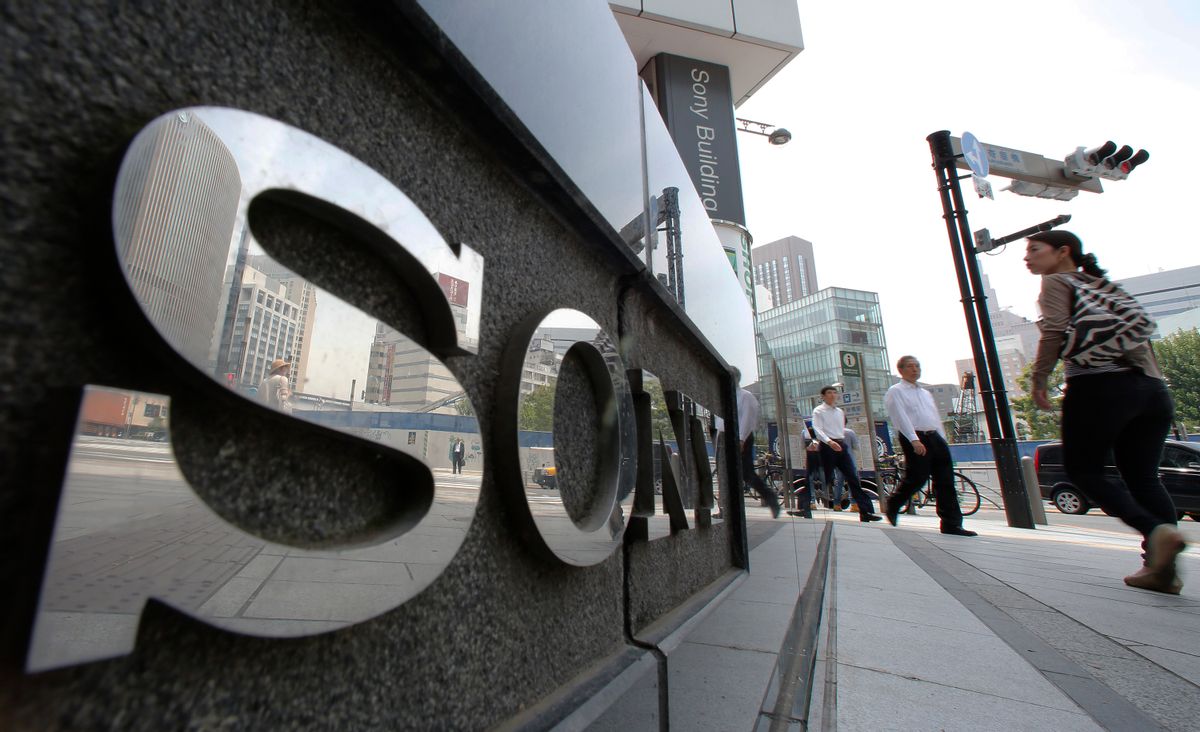TOKYO (AP) — Sony shareholders voted Thursday to keep Chief Executive Kazuo Hirai and other top executives after heckling them about the Japanese electronics and entertainment company's continuing losses.
Hirai, who took the helm in 2012, promised that "the money-losing structure" will be fixed this fiscal year once and for all, and apologized for not having acted quickly enough to changes in the business.
The 53-year-old showed on the screen a black-and-white photo of himself when he was 6, giggling on the floor with his father, who was tickling him to record his son's laughter on a reel-to-reel Sony recorder.
"The best way to build our future is for Sony to remain Sony, and realize our motto to become a company that inspires and fulfills your curiosity," he said.
Tokyo-based Sony Corp. has lost money in six of the seven past years, and is forecasting more red ink for the fiscal year through March 2015.
Sony's once-star TV division has lost money for 10 years straight, unable to keep up with Samsung Electronics Co. of South Korea and other rivals. In mobile devices, Sony has been slammed by Apple Inc.
Hirai said Sony engineers were filled with great ideas, which he promised to become real products, although they must all be fit to wear the "S-O-N-Y" label, he added, spelling out his company name.
Sony sold its Vaio personal computer business this year, and is splitting off its TV division to run as a wholly-owned subsidiary.
Sony has had problems making all its sectors of wide spectrum operations simultaneously profitable.
In recent years, its movie business has done relatively well, but the troubled electronics sector is dragging down the company overall. In its nearly seven-decade history, Sony has gone through periods of just the opposite.
Hirai found himself asking hecklers to "please keep quiet" again and again, as he fielded questions on his performance in leading Sony, the exodus of talented engineers, the poor product quality as well as plans for "wearable" products.
One investor got up to ask how Sony had lost its past glory, exemplified in the original 1979 Walkman portable player, stressing that he was disappointed in Hirai.
In answer to another investor, Hirai denied any plans to spin off its entertainment divisions.
Most of the shareholder votes had been submitted in advance from institutional investors. And so nearly 6 million votes were for the company proposal and less than 10 percent were against.
The other proposal on stock options for executives and employees also passed. Hirai defended it as a motivation to get revival going and boost share prices, which have lost half their value in the past five years.
Attendance at the annual general shareholders' meeting totaled 4,662 people, fewer than the 10,693 last year, highlighting the dwindling interest in the company.
___
Follow Yuri Kageyama on Twitter at twitter.com/yurikageyama



Shares